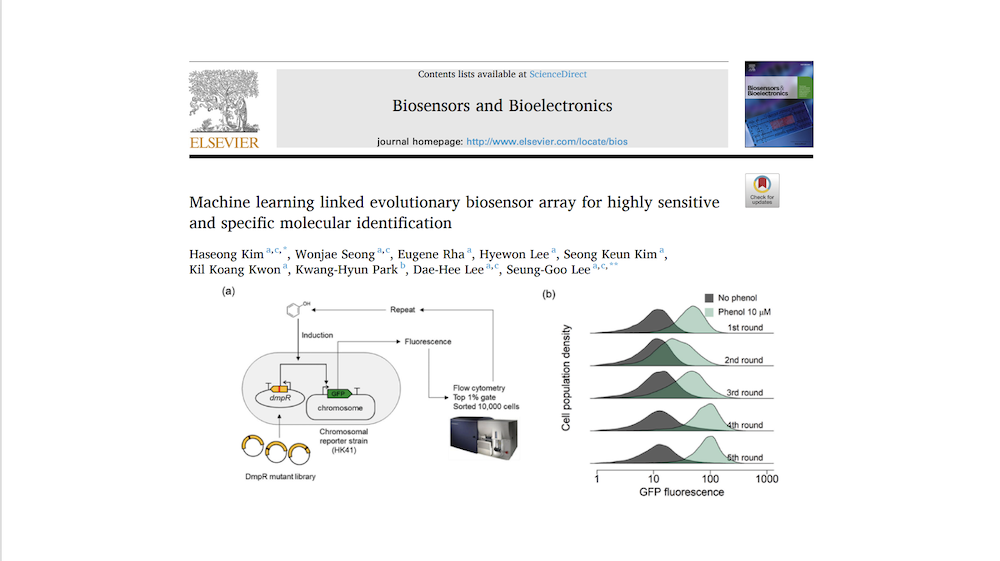김하성 교수님: Machine learning linked evolutionary biosensor array for high…
페이지 정보

작성자 최고관리자
조회 957회 작성일 2023-06-10 21:33
본문
Machine learning linked evolutionary biosensor array for highly sensitive and specific molecular identification
https://doi-org.libra.kaist.ac.kr/10.1016/j.bios.2020.112670
Abstract: Bacteria initiate complicated signaling cascades from the detection of intracellular metabolites or exogenous substances by hundreds of transcription factors, which have been widely investigated as genetically-encoded biosensors for molecular recognition. However, the limited number of transcription factors and their broad substrate specificity result in ambiguity in small molecule identification. This study presents a new small molecule fingerprinting technique using evolutionary biosensor arrays with a machine learning technique that can capture highly specific substrate signals. Employing multiple mutant transcription factors derived from a single transcription factor has effectively circumvented the limited availability of transcription factors induced by a small molecule of our interest. This method achieved up to 95.3% true positive rate for identifying small molecules, and the high-resolution protein engineering technique improved the limit of detection 75-fold. The signal trade-offs with background noises caused by the complex cellular biochemistry of mutant transcription factors enable the biosensor arrays to be more informative in terms of statistical variance. The machine learning technology, coupled with the single transcription factor-driven evolutionary biosensor array, will open new avenues for molecular fingerprinting technologies.
